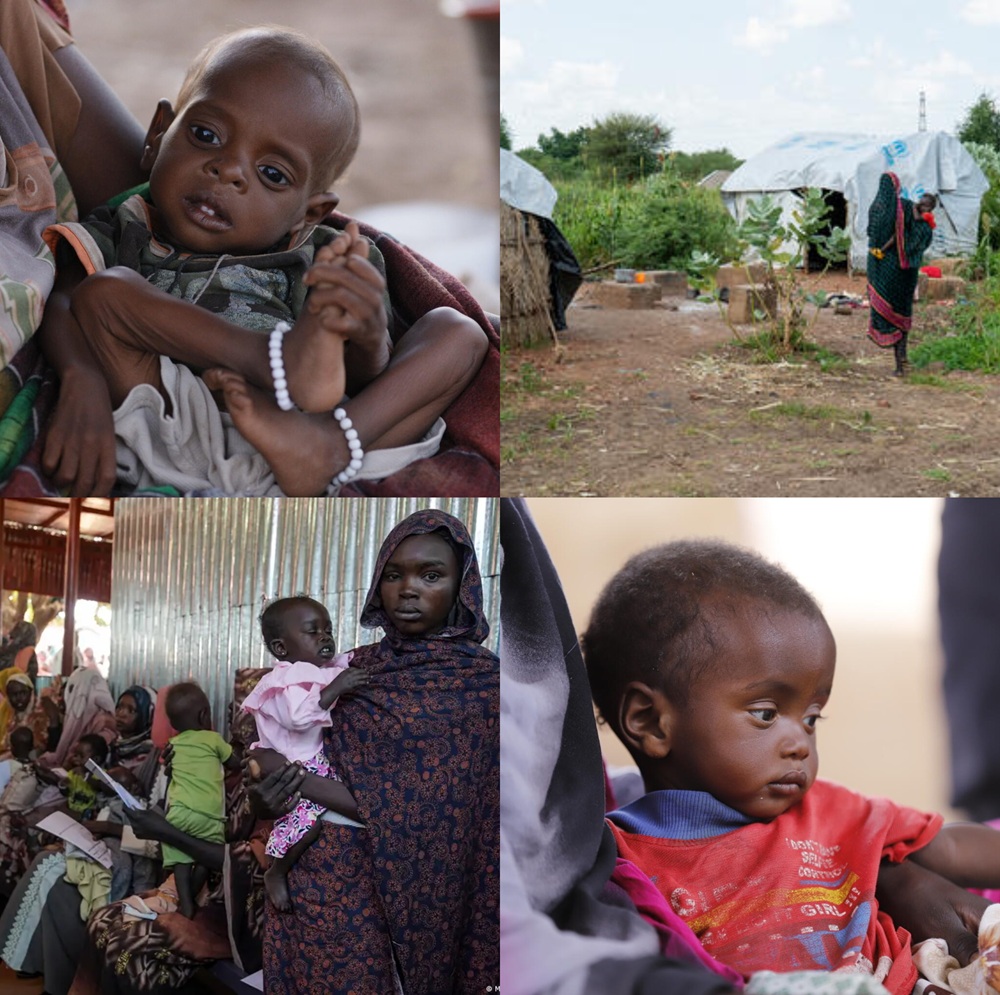As civilians continue fleeing atrocities committed by the Rapid Support Forces (RSF) in El Fasher, Sudan, Médecins Sans Frontières (MSF) has reported alarming levels of acute malnutrition among displaced people arriving in the nearby town of Tawila — describing it as the worst case yet in Sudan’s growing hunger crisis.
According to MSF, the situation in North Darfur has reached catastrophic levels. Among children under five who fled El Fasher between October 27 and November 3, over 70% were acutely malnourished, while 35% suffered from severe acute malnutrition. Of the 1,130 adults screened by MSF, 60% were acutely malnourished, and more than one-third were severely affected. Pregnant and breastfeeding women were found to be in an even worse state.
The findings confirm fears that famine has devastated El Fasher, which had been under siege for more than 500 days, and align with the Integrated Food Security Phase Classification (IPC) report declaring famine in El Fasher and Kadugli.
Survivors who escaped to Tawila told MSF that food became impossible to find as community kitchens shut down, humanitarian aid was blocked, and markets were destroyed by shelling. By September, seven kilograms of millet cost over SDG 500,000 (US$208), while a kilogram of sugar sold for SDG 130,000 (US$54) — forcing desperate families to eat animal feed.
“We were so hungry we began eating ambaz (animal feed),” said a displaced woman from North Darfur. “At first it was free, then we had to buy it, and the price kept rising.”
Those who tried to bring food into El Fasher were reportedly shot by RSF fighters. Many who survived managed to reach Tawila, where they are now receiving emergency treatment.
Read Also: UN genocide prevention chief warns of atrocity crimes in Sudan’s El Fasher
MSF fears that many people remain trapped in El Fasher, some allegedly held for ransom and unable to escape. The organization has called on the RSF and allied groups to halt mass atrocities and allow civilians safe passage.
Even for those who make it to Tawila, the crisis continues. Half of the 6,500 pregnant women who received prenatal care from MSF this year were acutely malnourished, putting their unborn children at risk of being underweight or severely malnourished at birth.
Across Sudan, MSF teams report a widespread deterioration in nutrition, driven by insecurity, disease outbreaks, economic collapse, and lack of access to aid. In Blue Nile State, the arrival of returnees from South Sudan has stretched already scarce resources, sparking a cholera outbreak and a surge in child deaths. Between July and September, MSF treated 1,950 severely malnourished children in Damazin Teaching Hospital — 100 of them died, many from a combination of cholera and malnutrition.
In Khartoum State, more than 700,000 people who have returned to conflict-ravaged neighborhoods since June are facing worsening hunger. Hospitals like Al-Buluk in Omdurman and Al-Banjadeed in Khartoum continue to report soaring malnutrition rates, while humanitarian assistance remains far below needs.
MSF warns that the true scale of Sudan’s hunger crisis may be far greater than current reports suggest. Without safe humanitarian access, increased funding, and coordinated global support, millions of children remain at risk of starvation.
“Across Sudan, there is still more that can be done to reduce the suffering caused by malnutrition,” said Myriam Laaroussi, MSF Emergency Coordinator. “We call on all warring parties to allow humanitarian organisations safe and unimpeded access to provide lifesaving aid.”
